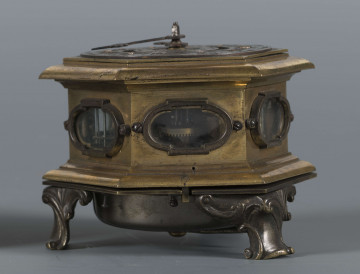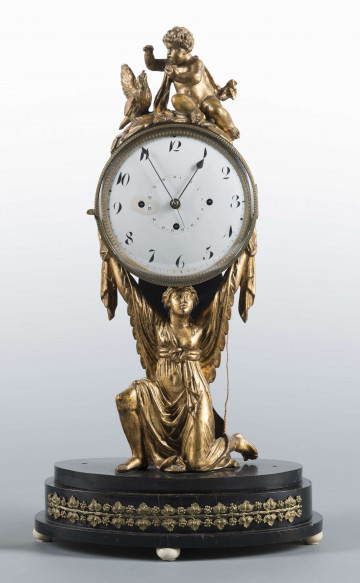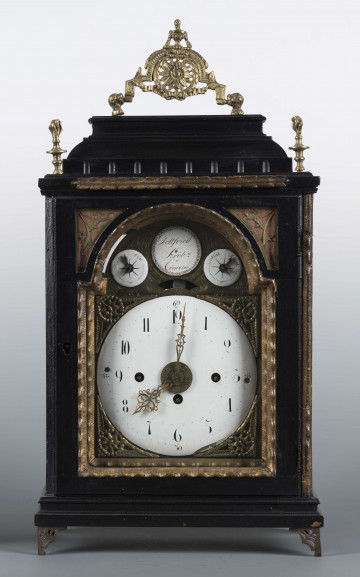
Table clock
1701 — 1800
National Museum in Lublin
Part of the collection: Clocks (17th–1st half of the 19th c.)
The simple mahogany cabinet blended well with the austere interior of the study and with furniture in the style of Classicism and Biedermeier. The dark wood is also a favourable background for gilded metal accessories. On the side there is a string ending in a bone ball - this is a repeater. Pulling the string causes the last hour to strike again. This was useful, especially at night, when the dial face could not be seen in the darkness. The sundial was made in Vienna, where there was a flourishing watchmaking centre which developed an individual style and introduced innovative technical solutions. One of them was the so-called Viennese system of striking hours and quarters of an hour, in which the hammers did not strike the bell-case, but a gong made of a spirally wound metal rod. The mechanism was often accompanied by an automaton. While striking the hours and quarters of an hour it moved figures placed on - or at the sides of - the clock face. The function of the timepiece was thus combined with a kind of mechanical toy.
The maker was Anton Rettich, a well-known watchmaker mentioned in municipal records since 1788. His name was also recorded as Redig and Rettig. In 1799, he obtained the status of master, and a year later was admitted as a citizen of Vienna, which indicates that he did not acquire this right by birth, but was a newcomer here. He died in 1833, leaving numerous clocks that still appear on the antiquarian market. They are of varied forms, which proves that he was able to meet the diverse tastes of his audience.
Barbara Czajkowska
Author / creator
Dimensions
cały obiekt: height: 17 cm, width: 25 cm
Object type
goldsmith's art
Technique
French polish coating
Material
steel, copper, bronze, wood, glass
Creation time / dating
Creation / finding place
Owner
The National Museum in Lublin
Identification number
Location / status

1701 — 1800
National Museum in Lublin

1840 — 1850
National Museum in Lublin

1780 — 1790
National Museum in Lublin
DISCOVER this TOPIC
National Museum in Szczecin
DISCOVER this PATH
Educational path